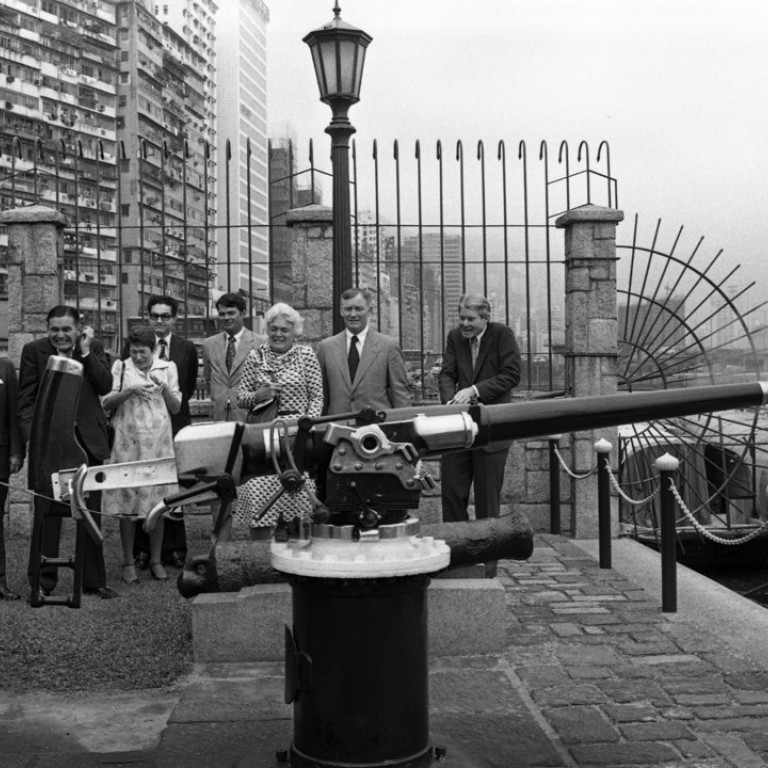
Former US president George HW Bush dies at the age of 94
- US leader was a foreign policy stalwart who declared a ‘new world order’ and drove Iraq from Kuwait in the Gulf war but his domestic agenda failed
George Herbert Walker Bush, a New Englander whose presidency soared with the coalition victory over Iraq in Kuwait, but then nosedived in the throes of a weak economy that turned voters against him after a single term, has died. He was 94.
The second world war pilot, who led during the collapse of the Soviet Union and the final months of the cold war, died at 10:10pm on Friday night, said family spokesman Jim McGrath. His wife of 73 years, Barbara Bush, died in April 2018.
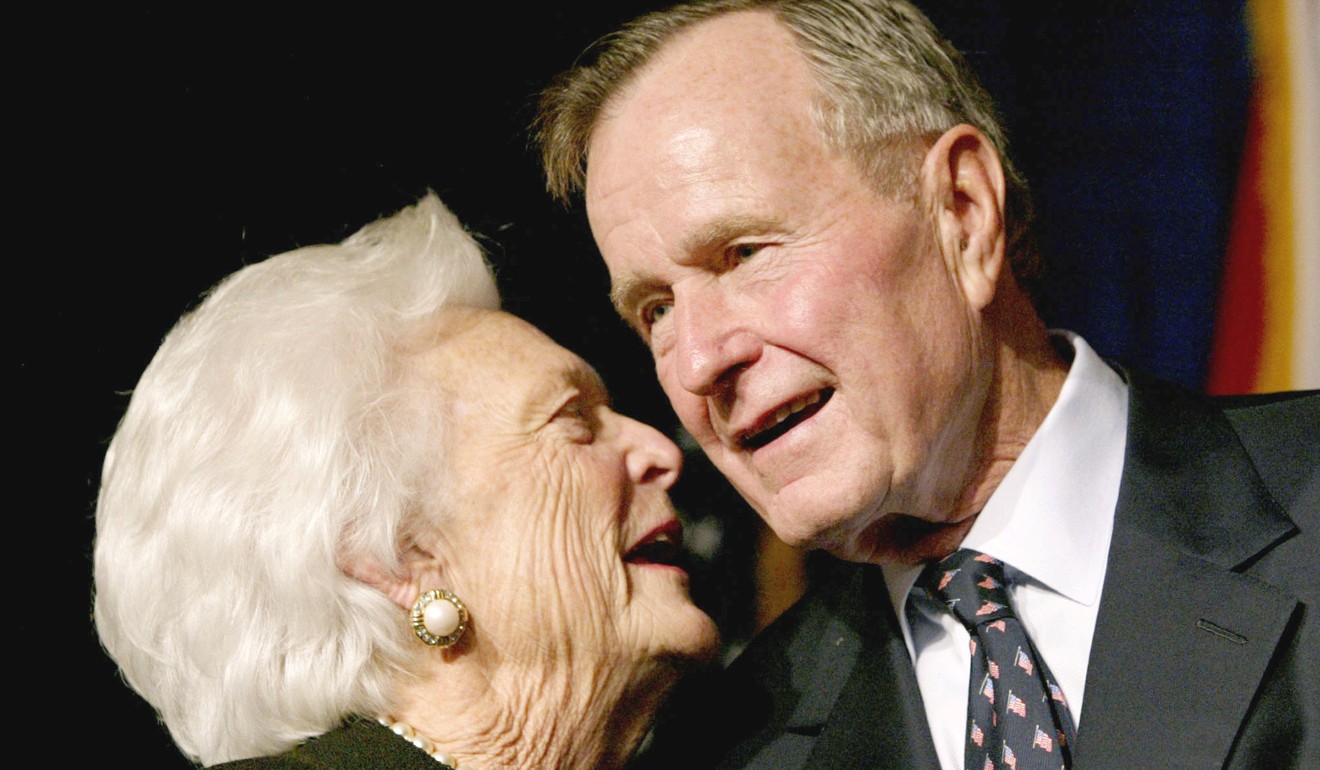
The son of a senator and father of a president, Bush rose through the political ranks: from congressman to UN ambassador, Republican Party chairman to envoy to China, CIA director to two-term vice-president under Ronald Reagan.
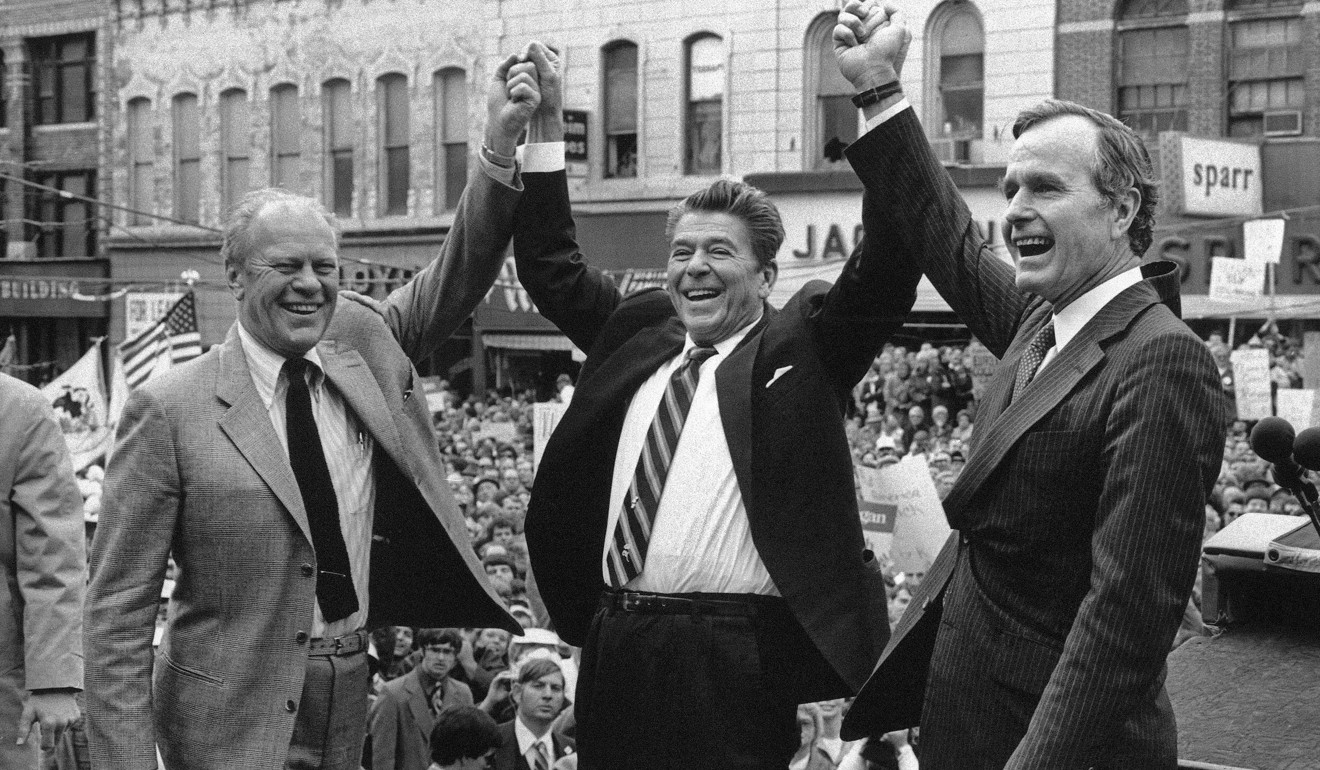
Bush was born on June 12, 1924, in Milton, Massachusetts, into the New England elite, a world of prep schools, mansions and servants seemingly untouched by the Great Depression.
His father, Prescott Bush, made his fortune as a banker then became a senator.
George H.W. Bush enlisted in the navy on his 18th birthday in 1942.
One of the youngest pilots in the Navy, he flew 58 missions off the carrier USS San Jacinto.
He was shot down on September 2, 1944, during a bombing run against a Japanese radio tower. An American submarine rescued him.
After the war, Bush went to Yale then the oilfields of West Texas. He helped found Zapata Petroleum in 1953. Six years later, he moved to Houston and became active in the Republican Party.
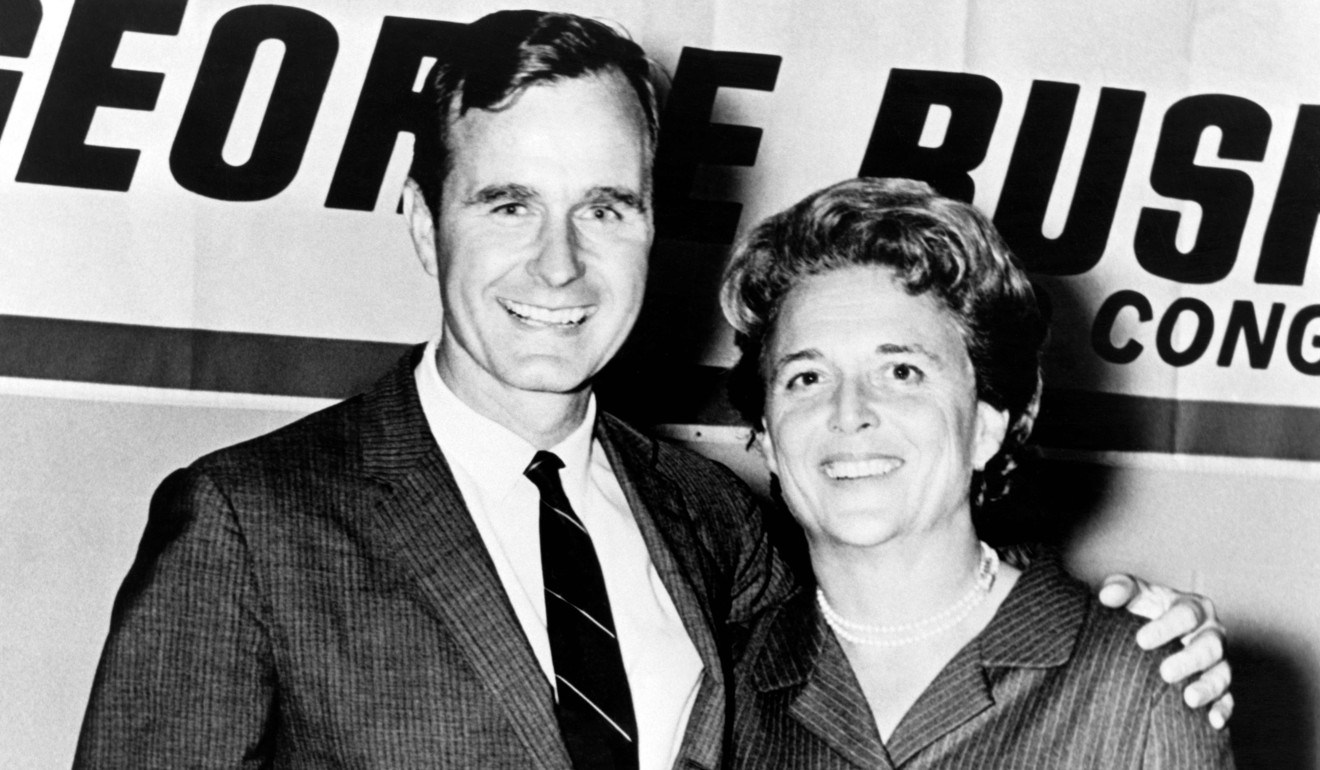
He was first elected to Congress in 1966 and served two terms. President Richard Nixon appointed him ambassador to the United Nations, and after the 1972 election, named him chairman of the Republican National Committee.
Bush struggled to hold the party together as Watergate destroyed the Nixon presidency, then became ambassador to China and CIA chief in the Ford administration.
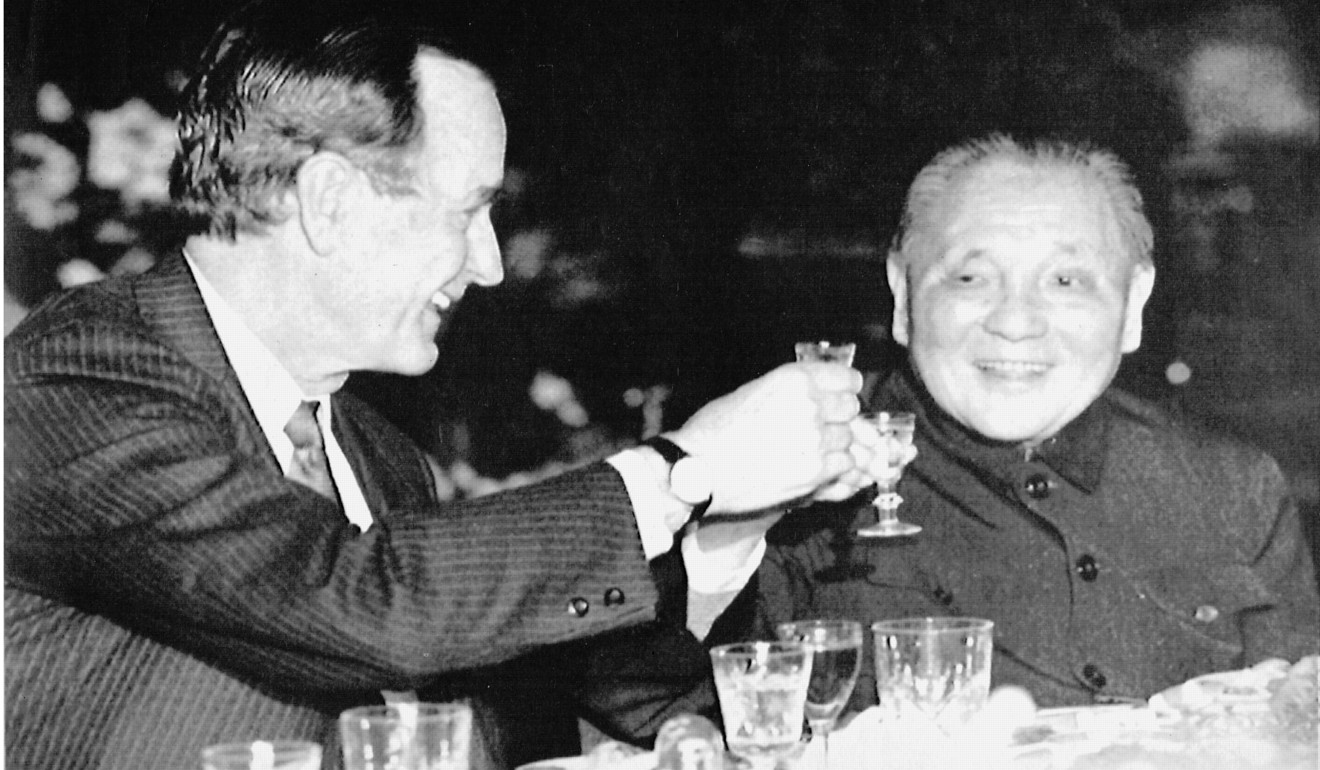
In the 1988 presidential race, Bush trailed Democratic candidate Michael Dukakis, by as many as 17 points in the summer.
But he soon became an aggressor, stressing patriotic themes and flailing Dukakis as an out-of-touch liberal. He won 40 states and became the first sitting vice-president to be elected president since 1836.
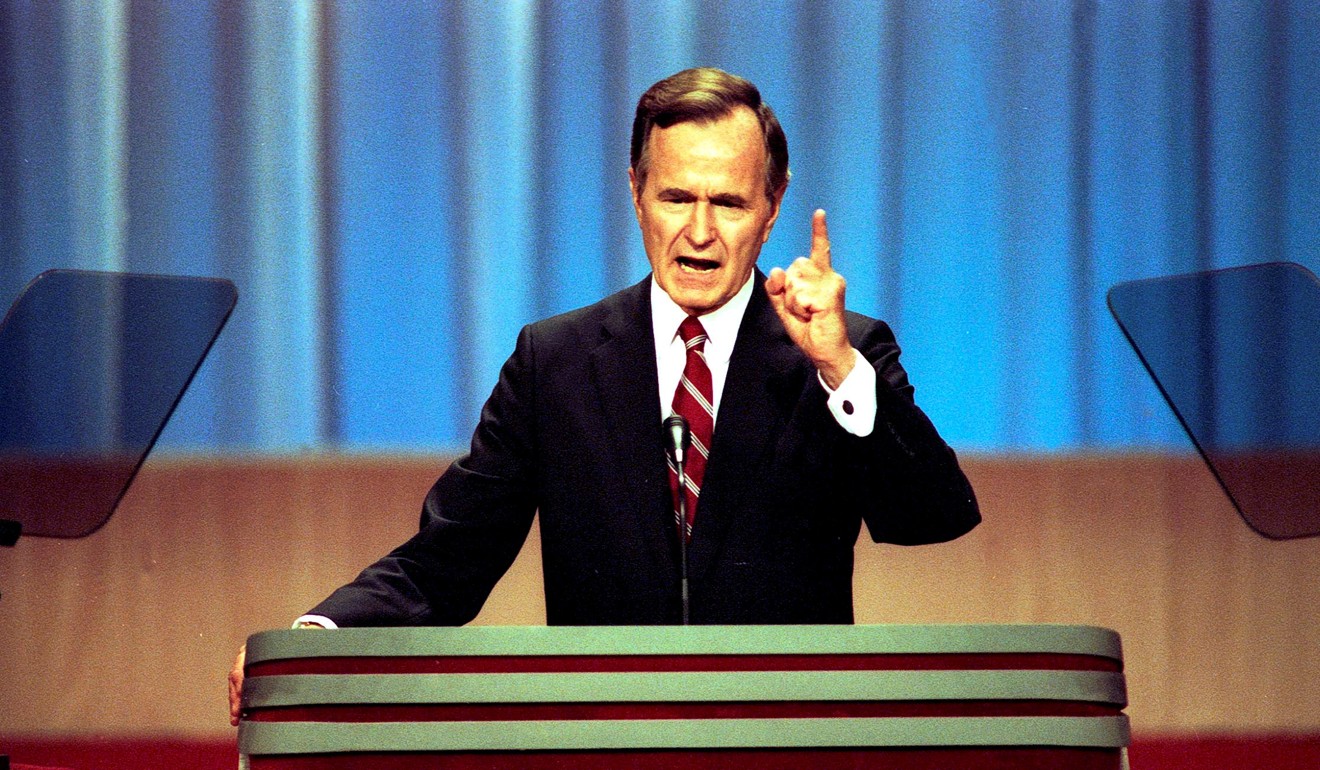
George H.W. Bush entered the White House in 1989 with a reputation as a man of indecision and indeterminate views. One news magazine suggested he was a “wimp”.
The Iraq crisis of 1990-91 brought out all the skills Bush had honed in a quarter-century of politics and public service.
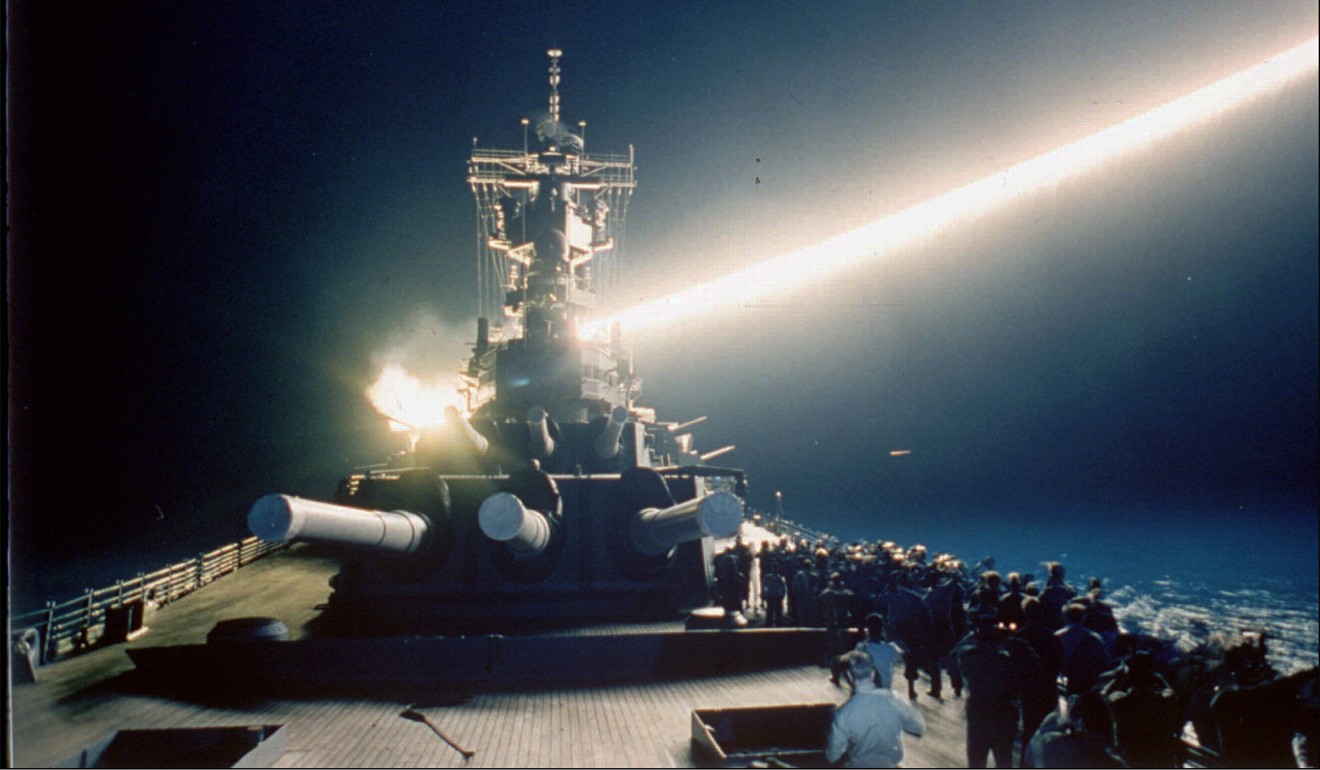
After winning United Nations support and a green light from a reluctant Congress, Bush unleashed a punishing air war against Iraq. He basked in the biggest outpouring of patriotism and pride in America’s military since the second world war, and his approval ratings soared to nearly 90 per cent.
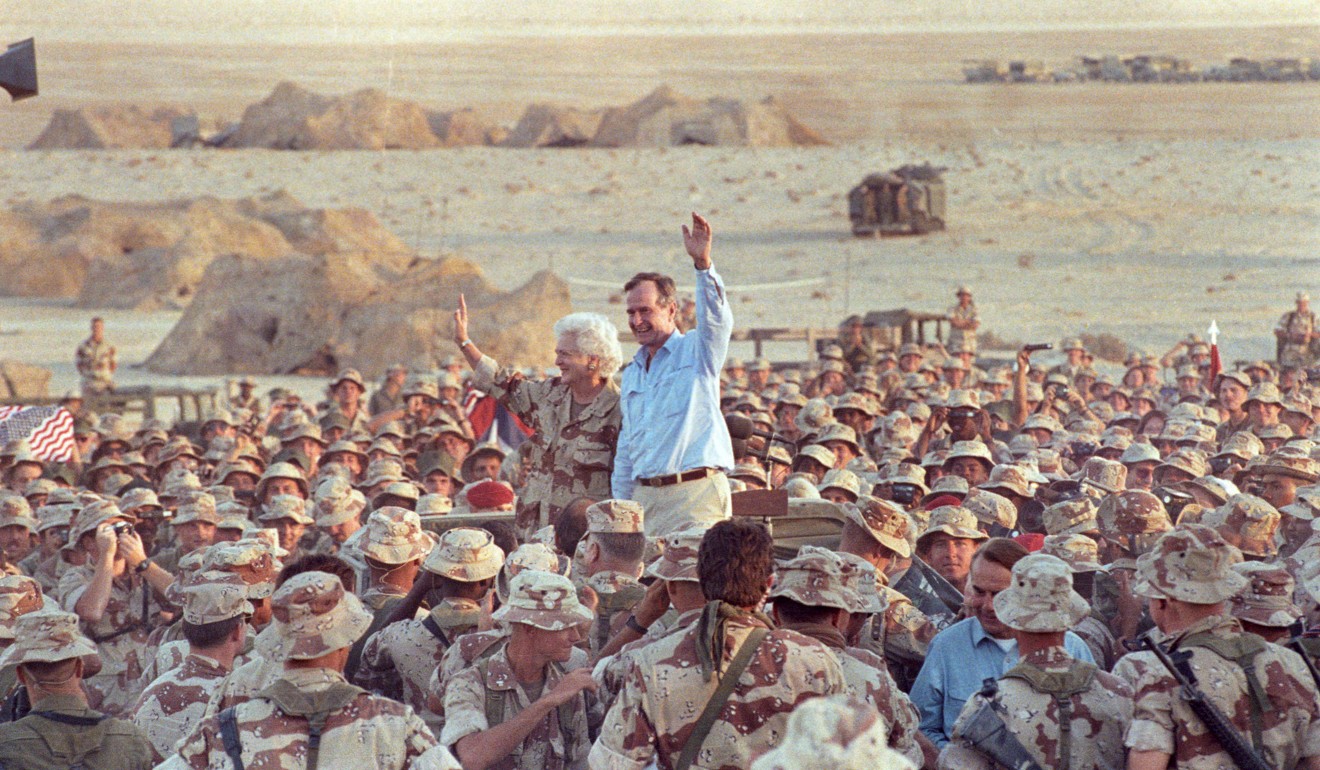
.
After liberating Kuwait, he rejected suggestions the US take the offensive to Baghdad, choosing to end hostilities a mere 100 hours after the start of the ground war.
“That wasn’t our objective,” he said in 2011. “The good thing about it is there was so much less loss of human life than had been predicted.”
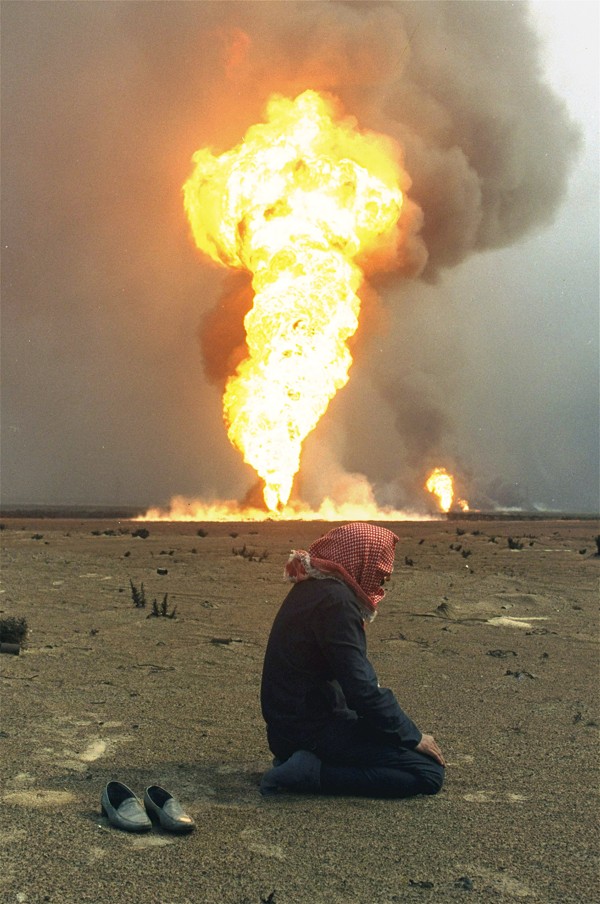
But the decisive military defeat did not lead to Saddam Hussein’s downfall, as many in the administration had hoped.
“I miscalculated,” acknowledged Bush. His legacy was dogged for years by doubts about the decision not to remove Saddam Hussein. The Iraqi leader was eventually ousted in 2003, in the war led by Bush’s son that was followed by a long, bloody insurgency.
While the 1991 Gulf war stoked his popularity, Bush acknowledged he had trouble articulating “the vision thing” and was also haunted by his decision to break a solemn vow he made to voters: “Read my lips. No new taxes.”
He failed to rein in the deficit, which tripled to US$3 trillion under Reagan and galloped ahead by as much as US$300 billion a year under Bush.
Seven years of economic growth ended in mid-1990. Bush insisted the recession would be “short and shallow,” and lawmakers did not even try to pass a jobs bill or other relief measures.
His true interests lay elsewhere: “I love coping with the problems in foreign affairs,” he told a child who asked what he liked best about being president.
He operated at times like a one-man State Department, on the phone to Russia’s Mikhail Gorbachev, Francois Mitterand of France or Germany’s Helmut Kohl.
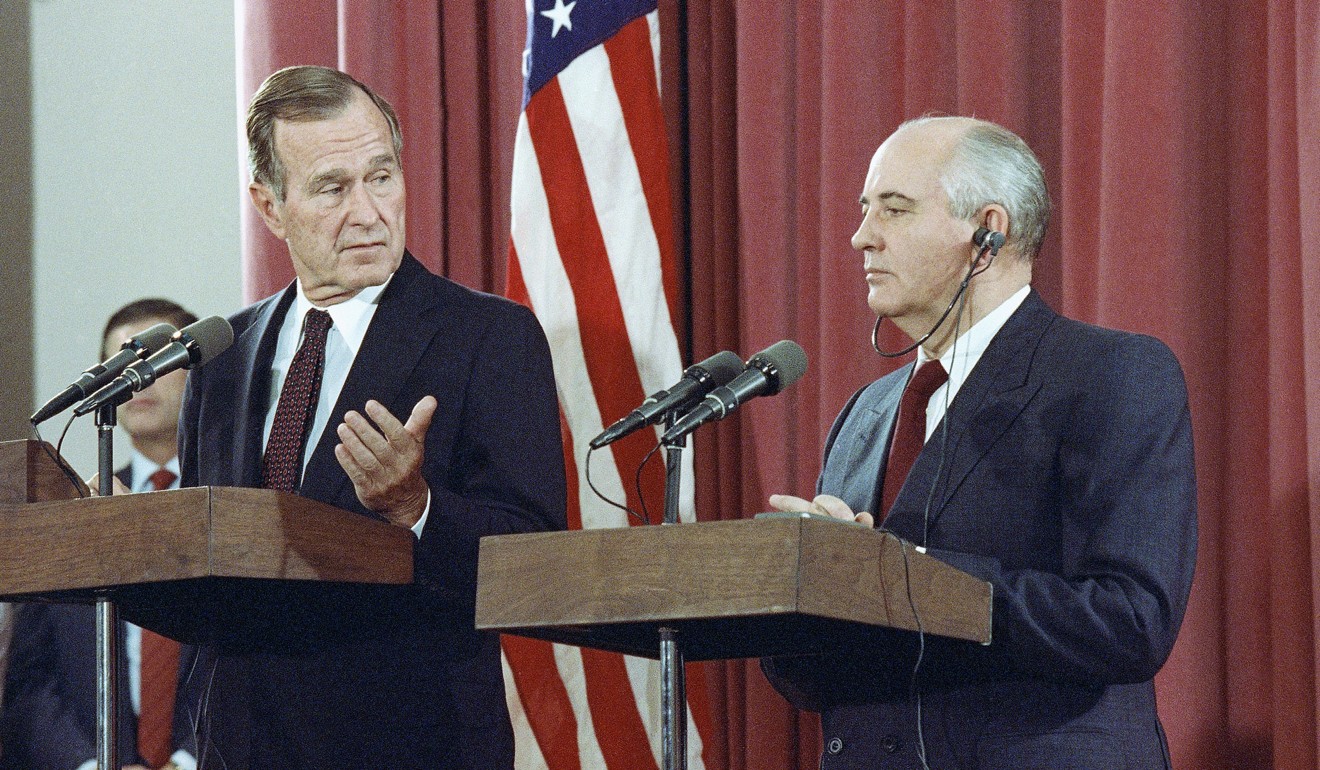
Communism began to crumble on his watch, with the Berlin Wall coming down, the Warsaw Pact disintegrating and the Soviet satellites falling out of orbit.
In the closing days of the 1992 campaign, Bush fought the impression that he was distant and disconnected, and he seemed to struggle against the younger, more empathetic Bill Clinton.
During a campaign visit to a grocers’ convention, Bush reportedly expressed amazement when shown an electronic checkout scanner. Critics seized on the moment, saying it indicated that the president had become disconnected from voters.
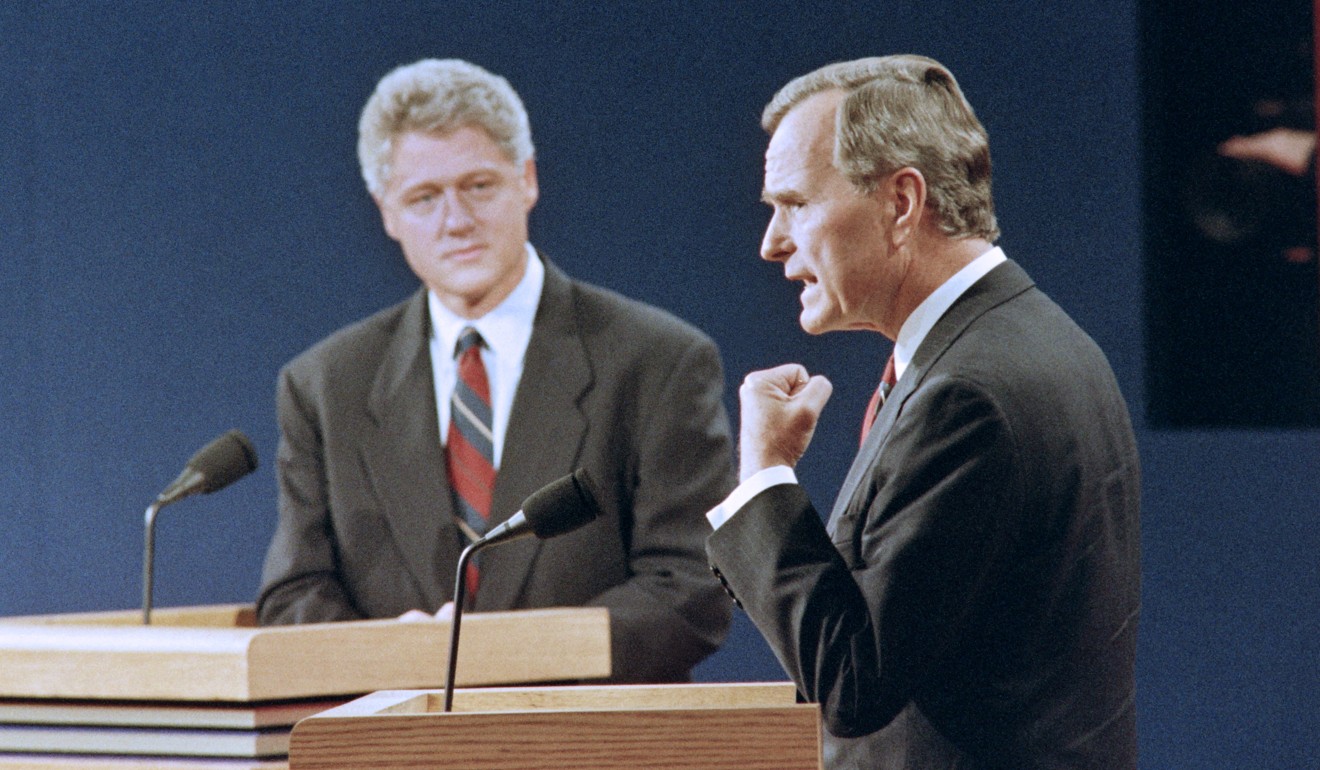
“I lost in ‘92 because people still thought the economy was in the tank, that I was out of touch and I didn’t understand that,” he said in 1997. “The economy wasn’t in the tank, and I wasn’t out of touch, but I lost.”
Bush complained that media-created “myths” gave voters a mistaken impression he did not identify with the lives of ordinary Americans. He decided he lost because he “just wasn’t a good enough communicator”.
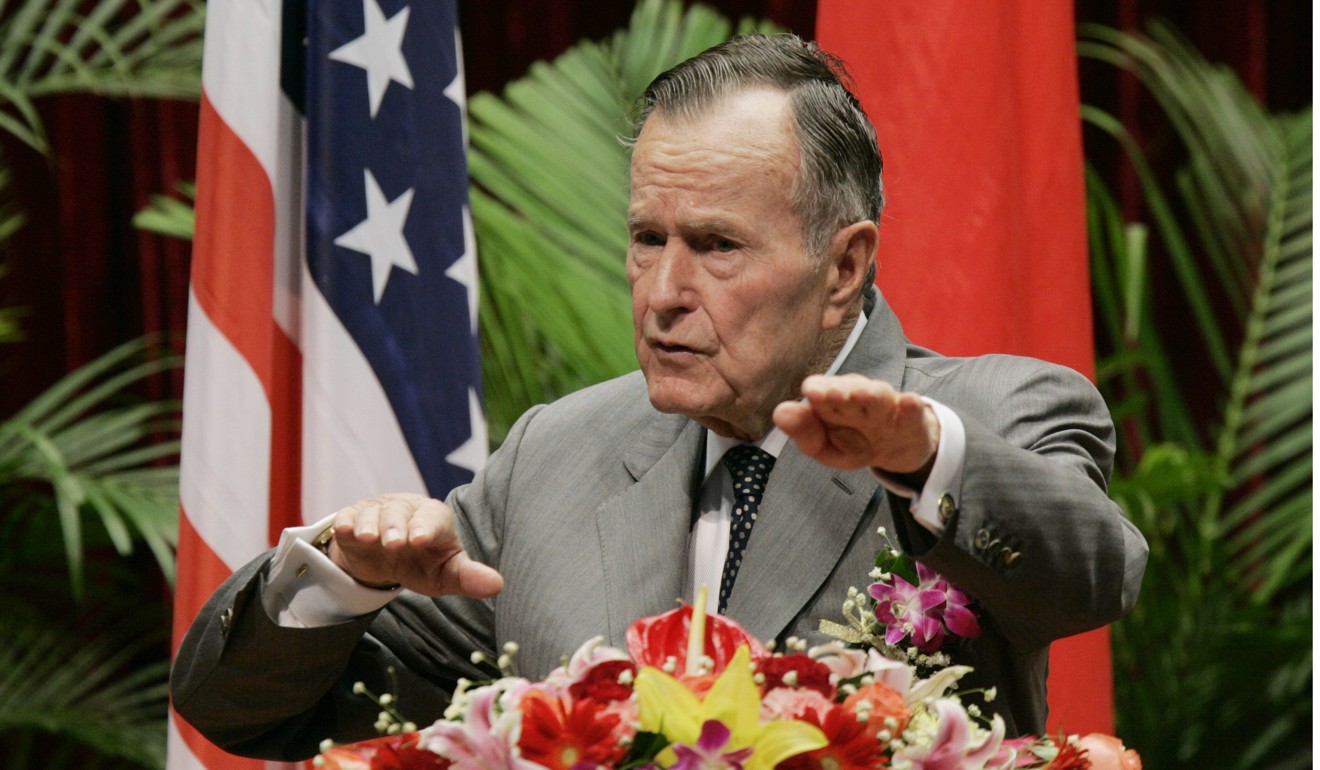
Still, he lived to see his son, George Walker Bush, twice elected to the presidency – only the second father-and-son chief executives, following John Adams and John Quincy Adams.
Once out of office, Bush was content to remain on the sidelines, except for an occasional speech or paid appearance and visits abroad. He returned to China, where he was welcomed as “an old friend” from his days as the US ambassador there.
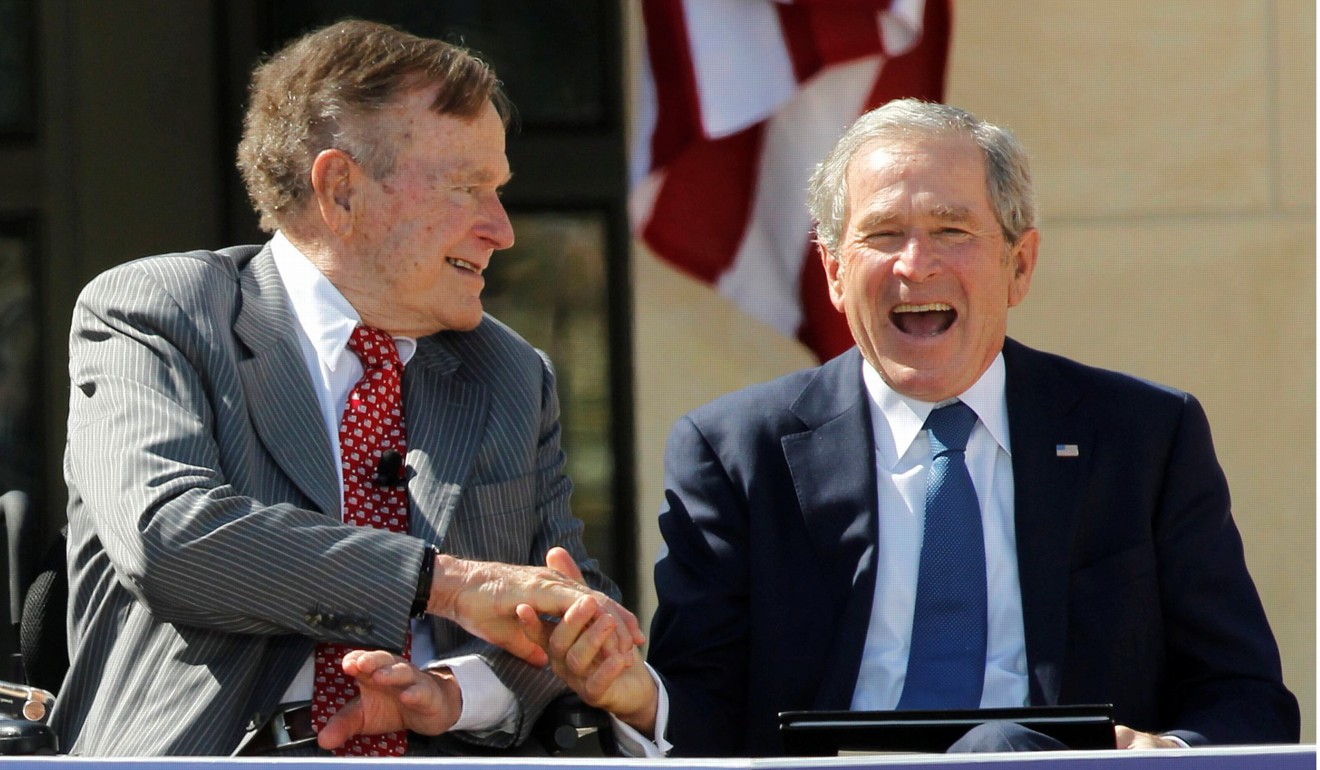
He later teamed with Clinton to raise tens of millions of dollars for victims of a 2004 tsunami in the Indian Ocean and Hurricane Katrina, which swamped New Orleans and the Gulf coast in 2005. During their wide-ranging travels, the political odd couple grew close.
“Who would have thought that I would be working with Bill Clinton, of all people?” Bush quipped in October 2005.
Bush approached old age with gusto, celebrating his 75th, 80th and 85th birthdays by skydiving.

